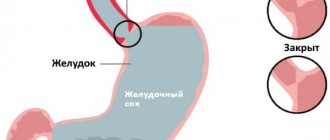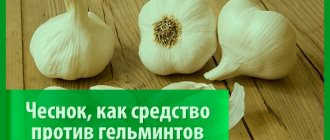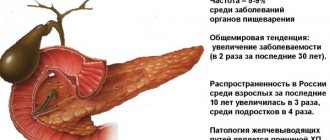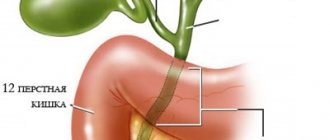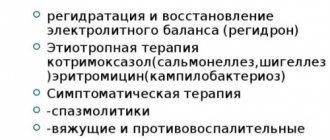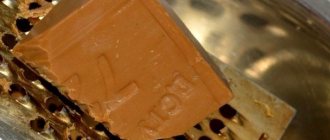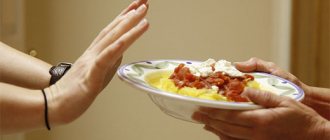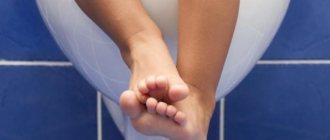Causes of frequent constipation
Chronic constipation has the following main causes:
- poor nutrition;
- sedentary lifestyle;
- frequent use of laxatives;
- habit of holding back the urge to have a bowel movement.
Disruption of intestinal emptying processes occurs when there is a lack of fermented milk products and plant foods in the diet.
IMPORTANT! Chronic constipation is also a symptom of irritable bowel syndrome (IBS).
Chronic constipation can be caused by pathologies that require surgical intervention - intussusception, intestinal blockage.
Causes of pathology:
- tissue scarring;
- malignant neoplasms;
- adhesive process;
- helminthic infestations;
- diverticulosis.
Constipation can manifest itself in conditions of fear of defecation in the presence of proctological diseases - paraproctitis, anal fissure, hemorrhoids. Lack of stool can be caused by neurological disorders - depressive states, stress, psycho-emotional overload. Many drugs disrupt intestinal motility. Constipation can be caused by pathologies of the nervous system that disrupt the innervation of the digestive tract.
Symptoms of constipation
Persistent constipation has the following symptoms:
- heaviness in the iliac region;
- lack of stool for several days;
- abdominal pain appears;
- partial bowel movement;
- increased sweating;
- sleep disorders;
- pain in the navel area;
- belching;
- nausea and vomiting;
- pain in the lumbar region;
- increased drowsiness;
- very hard stool;
- bloating.
If at least some of the above symptoms appear, then you need to visit a gastroenterologist.
What to do if you have frequent constipation?
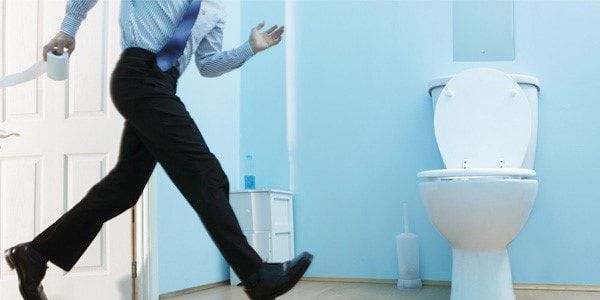
We can talk about chronic constipation if the absence of stool is frequent and prolonged.
Stagnant feces release carcinogens, which poison the body and can cause various complications. Chronic constipation leads to enteritis, pancreatitis, hemorrhoids, anal fissures, inflammatory processes in the intestines, cancer, etc.
Regular constipation can be eliminated only with comprehensive treatment. This problem can be solved by a balanced diet, lifestyle changes, and exercise. The doctor may also prescribe medications.
If prolonged constipation is accompanied by pain, you should consult a specialist, as pain may be a sign of intestinal pathologies.
If the doctor has ruled out gastrointestinal diseases, then constipation can be treated at home, even with folk remedies.
Diet
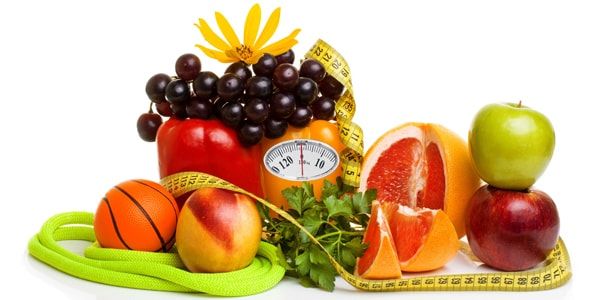
Often the cause of fecal stagnation is poor nutrition, so this problem can be solved by correcting the diet. The menu should include the following products:
- water (from 2 liters per day);
- bran bread made from wholemeal flour;
- bran;
- dried fruits;
- oatmeal, buckwheat and barley porridge;
- mineral water, compotes, juices;
- low-fat soups (vegetable, with second broth);
- grapes, plums, melon, apricots, kiwi;
- vegetable oils;
- beets, tomatoes, carrots, cauliflower, broccoli, pumpkin, zucchini.
These products have a laxative effect and have a beneficial effect on the functioning of the digestive system.
You should also list constipating products that cause constipation:
- spicy, salty foods;
- fatty and fried foods;
- White cabbage;
- spinach;
- rice and semolina porridge;
- legumes;
- pomegranate, pear, hawthorn, black currant;
- hard cheeses;
- coffee, cocoa, chocolate.
Diet is an integral part of measures for the treatment and prevention of constipation. Following a diet not only helps get rid of existing constipation, but also prevents recurrence.
Exercises

An important factor in treating constipation is increasing physical activity. Constipation is caused by a sedentary lifestyle, so increasing activity can normalize the functioning of the digestive system.
The following exercises will help you cope with constipation:
- Lying on your back, perform the “Bicycle” 30 times.
- Lie on your back. Spread your arms and bend over, retracting your anus. Repeat the exercise 10 times.
- Lie on your back. Pull your legs bent at the knees to your stomach and take the starting position. Repeat 10 times.
- Lie on your back. Spread and bring your knees together. Repeat the exercise 10 times.
- Lying on your back, you need to put your legs behind your head. Perform the exercise 10 times.
- While standing, you need to retract the anus. Do it 10 times.
- Walk for 5 minutes with your knees raised high.
Features of choosing a medicine

It should be remembered that there are no pills that will help eliminate constipation and solve all problems - the treatment of such a pathological condition must be comprehensive. Proper and balanced nutrition plays an important role. If you overuse fatty, spicy and dairy products, the functioning of the gastrointestinal tract may be disrupted. Under such conditions, medications will only temporarily ease the process of defecation. How to treat constipation in adults in order to forget about the disease forever? Among the main medications for constipation are:
- Prebiotics. Positively affect the functioning of the digestive tract. They are prescribed to both children and adults. During treatment with antibiotics, it is necessary to take this group of drugs - this will protect the gastrointestinal tract from the negative effects of potent medications.
- Irritant laxatives are the most effective in combating constipation.
- To improve digestion, doctors recommend an intestinal filler. These tablets are difficult to digest. Under such conditions, the amount of feces increases and the process of defecation occurs faster.
- Medicine for constipation of osmotic action is prescribed to the patient if acute stool retention is detected. It is not recommended to take such tablets regularly. This group of medications is prescribed for poisoning - they help improve the patient’s well-being.
How to treat frequent constipation with medications?

When diet does not help and other methods of treating chronic constipation are ineffective, the doctor prescribes laxatives.
Important! Self-administration of medications can cause complications, so taking laxatives is allowed only as prescribed by a specialist.
There are 6 groups of laxatives:
1) Contact laxatives. They have an irritating effect on the receptors of the large intestine and improve peristalsis. The negative side is that this group of laxatives penetrates the bloodstream, causing a wide range of side effects.
Contact laxatives: Bisacodyl, zhoster (buckthorn), sodium picosulfate, castor oil, Laxbene, senna glycosides, steelhead, Senade, Dulcolax, rhubarb root, Guttalax, etc.
2) Emollients. Emollients soften the stool, helping the stool move along.
The most common emollients are liquid paraffin, petroleum jelly, etc.
3) Bulk laxatives. Such drugs retain water in the gastrointestinal tract, which softens the consistency and increases the volume of stool. Bulk laxatives stimulate bowel contractility, which causes bowel movements.
This group of laxatives includes: flea plantain husk, bran, agar-agar, flax seeds, figs, seaweed, sterculia, methylcellulose, etc.
4) Laxatives in enemas. They act in the rectum, increase volume and dilute stool.
This group includes: Bisacodyl, Glycerol, Microlax, sodium docusate, etc.
5) Osmotic laxatives. These are the most bladeless laxatives. Divided into 3 groups:
- saline laxatives;
- based on lactulose;
- Macrogol and analogues.
Saline laxatives and Macrogol have an effect on the entire intestine.
Osmotic laxatives increase osmotic pressure, attract water into the intestine, increase the volume and marking of feces, which causes increased peristalsis and mechanical irritation of the intestine. They do not affect the absorption of minerals and vitamins and are not addictive.
Preparations in this group include: Carlsbad salt, Endofalk, Normaze, magnesium sulfate, Fortrans, Lactusan, sodium sulfate, magnesium hydroxide, Duphalac, Forlax, Normolakt, Prelax, etc.
6) Other laxatives – various mixtures and preparations.
Taking medications will be effective only after they are prescribed. You should also keep in mind that most laxatives are not recommended during pregnancy and breastfeeding.
Enema
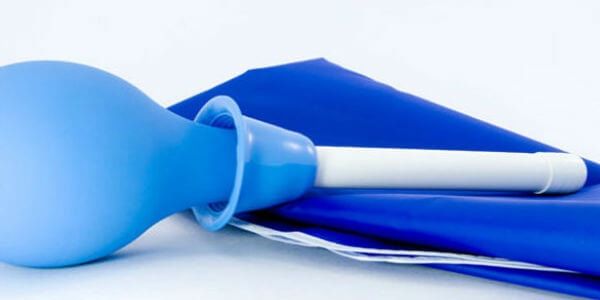
An enema is another remedy used for constipation. This is the introduction of liquid (solutions, medications, or just water) through the anus into the colon and rectum.
As a rule, the elimination of constipation occurs with the help of cleansing enemas and microenemas. Enemas with the following solutions are used:
- water;
- glycerin, glycerin solution;
- soap solution;
- hypertonic solutions (sodium chloride, magnesium sulfate);
- enemas with vegetable or vaseline oil;
- enemas with lemon juice or vinegar.
An enema can be used to quickly solve the problem of persistent constipation. This medical procedure cannot be performed very often as it depletes the body.
Folk remedies
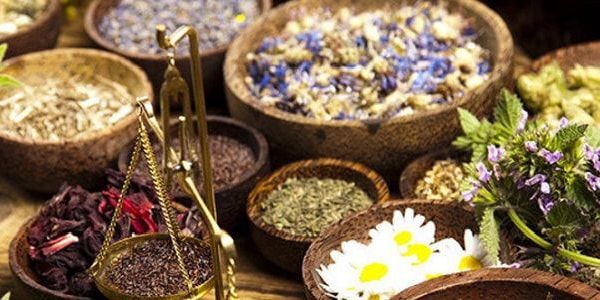
The use of folk remedies for frequent constipation is not only safe, but also effective. To treat frequent constipation, you can use the following recipes:
- Twice a day, take 10 grams of dry kelp powder, wash it down with water.
- 40 grams of buckthorn bark, 10 grams of caraway seeds, 20 grams of chamomile. Add one tablespoon of the resulting mixture to 200 ml of boiling water and boil in a water bath for 10 minutes. Take before bedtime.
- Pour 200 grams of dry rhubarb root with a liter of water. Then bring the mixture to a boil, simmer for 5 minutes. Cool and strain the broth. Drink like tea.
- Rhubarb root (powder) – drink 1 or 2 tablespoons twice a day. Drink with water.
Simple Recipes for Gut Health
Folk remedies for constipation can be prepared from:
- rowan fruit. Dietary fiber stimulates the reflex endings of the endothelium, flavonoids and ascorbic acid relieve intoxication and inflammation. Fill a half-liter jar with rowan, add sugar on top. The berry is infused for a month in a dark, warm place. After a while, the syrup is filtered, 25 grams of alcohol or strong vodka are added to it. To prevent problems with constipation, drink 25 ml of the medicine in the morning before meals;
- Burdock root is brewed in a glass of boiling water. For a strong solution, 1 teaspoon is needed. Take 3 doses of half a glass a day;
- Rosehip bark is a proven folk remedy for treating digestive disorders. Take 3 teaspoons of the plant, 1 teaspoon of yarrow, 2 teaspoons of stinging nettle. Brew and drink half a glass before meals;
- fennel fruits, 1 teaspoon of valerian, 1 teaspoon of mint, 2 teaspoons of chamomile, brew and drink half a glass 3 times a day;
- flax will help you get rid of constipation easily and safely. A decoction of the seeds is brewed and drunk on an empty stomach. You can replace it with linseed oil. A tablespoon of the product in the morning will fill the body with vitamins and prevent stool stagnation. For treatment, raw materials are used with a shelf life of no more than 2 years.

It is worth recalling that traditional recipes can cause allergies. Therefore, before therapy, check whether you have an individual reaction to the components. Then the treatment will be effective and safe.
Disease prevention

The most common causes of stool retention are a passive lifestyle and poor nutrition, so the main thing is to monitor your diet and eat more fruits and vegetables. It is also recommended to exclude unhealthy foods from the menu: sweets, smoked foods, fatty, salty and spicy foods.
An important preventative measure for constipation is to maintain an active lifestyle (if you have sedentary work - warm-up, walks in the air). You also need to follow a diet and empty your bowels on time.
It should be noted that it is strictly not recommended to ignore the symptoms of pathology. It is important to contact a specialist at the first manifestations. If the diagnosis is confirmed, treatment at home is allowed, but you should still not self-medicate.
Week-long absence of stool in adults: how to help the patient?
Constipation for 7 days in an adult is characterized by difficulty in defecation. Stool comes out slowly or is absent altogether. Often, due to its hardness or dryness, the process of bowel movement provokes ruptures of the anus.
Patients complain of headaches, fever, general weakness, drowsiness, nausea and other signs of intoxication. Constipation itself causes discomfort in the intestines and hardening of the abdomen.
Constipation for 7 days in an adult, what to do if you can’t get to the doctor right away? Changing your diet and following a drinking regime will help improve peristalsis.
Useful products include:
Recipes, menus and diet products
- kefir, fermented baked milk, curdled milk and yoghurts;
- buckwheat porridge;
- boiled beets;
- prunes;
- honey and walnuts;
- vegetables and fruits.
To soften feces and cleanse the intestines, an enema procedure with oils should be performed. It is better not to take laxatives without your doctor’s knowledge.
